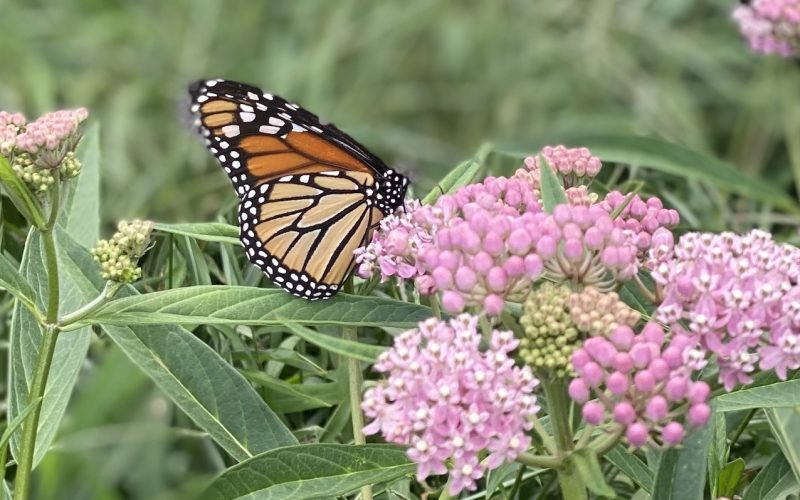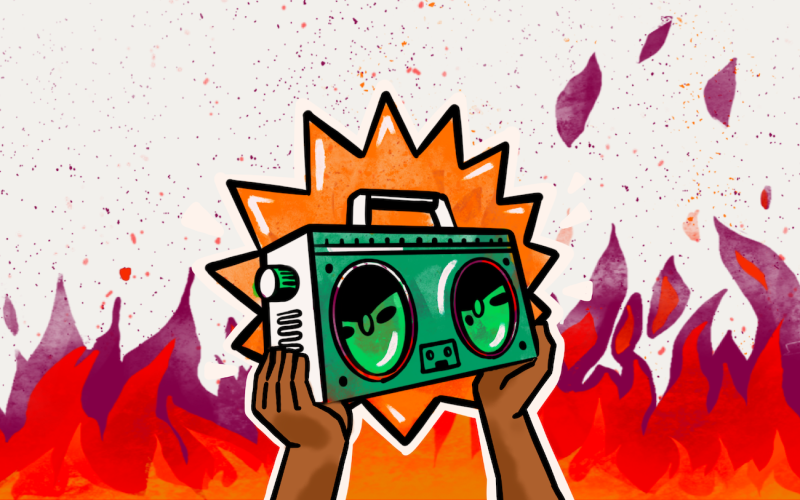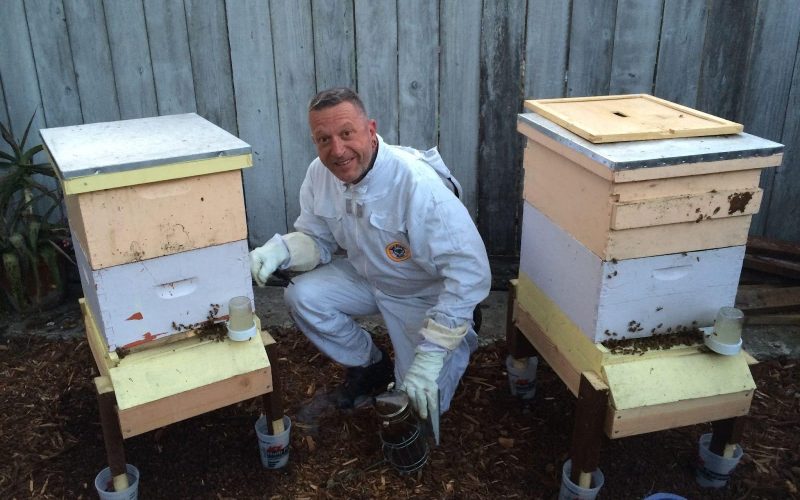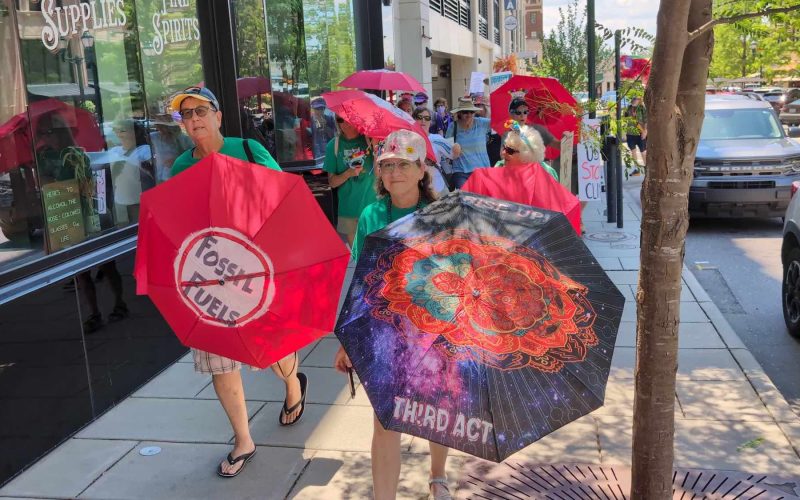Dan Quinlan, Third Act Vermont volunteer and Hope & Joy host, sat down with us to chat about why and how he moved his money to a better bank.
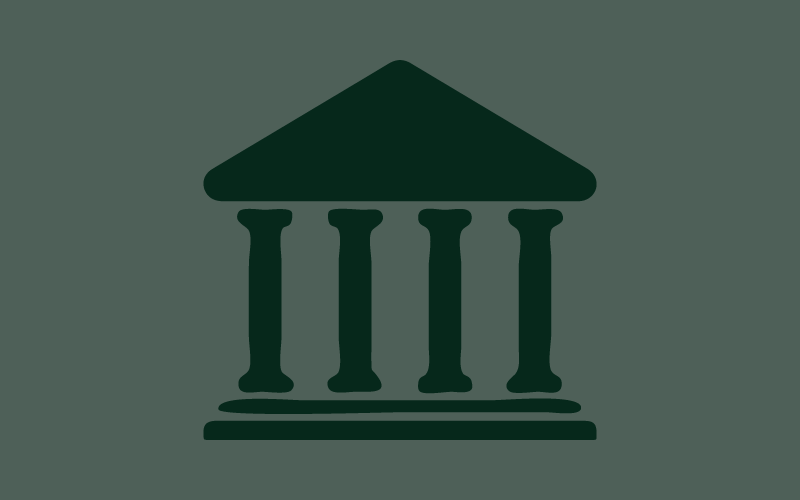
He also let us in on some tricks he’s learned along the way, along with what he wishes he’d known earlier.
Dan is the Founder and Executive Director of SolaVida, a grassroots non-profit founded in 2013. His work spans policy/program campaign design and management, organization launch and management, finance, and strategy for-profit and non-profit organizations.
Money is what moves the world. And if we each do our little part with money, that’s what’s going to move the major banks and major corporations. I feel really good about what we’ve done.
What motivated you to move your money?
I got very interested in the divestment movement about a decade ago. I have a finance background, and I’m also aware of the work that was done around South Africa, to use divestment as a way to pressure the South African government to end apartheid. The company I worked for back then allowed us to shift our funds away from South Africa. We saw what happened, and how big of an influence it had. All of these pieces came together in my mind as something powerful that I could do, both at a personal level and in these bigger collectives.
I began to look into moving my money and trying to understand how I would go about doing it. Around that time, I started to talk to the folks at As You Sow who were developing the tool, Fossil Free Funds, that tells you if various funds have fossil fuel investments.
For my wife and I, it’s mainly our retirement funds. So I began to use that tool and to see where I could put our money. I began to work out how to make my own fossil fuel free portfolio. It’s been 99% fossil fuel free for a decade now. I later sought out a wonderful investment advisor who thinks that way, and has helped us manage our money.
While most people won’t dive in at the level I will because I’m kind of geeky and am also very interested in the stock market, they can find others who can help them.
What advice would you give to a Third Actor looking to move their money?
Get a financial advisor who shares your values and who knows about sustainability! I’ve had this conversation with a lot of people and the reaction every time is that it’s too complicated to know what to do on my own.
But keep in mind your average financial advisor will either try to talk people out of this because it’s too complicated. They don’t understand or it’s not mainstream. So you have to do a little hunting to find investment advisors who specialize in these kinds of ideas. ESG (Environmental, Social, and Governance) is now a big thing.
There are a few directories that can help you find an advisor knowledgeable about sustainable investing, including: Green America’s Socially Responsible Financial Planners & Investment Consultants, First Affirmative’s directory, and Find a B-Corp.
And if they want to do it themselves?
If you don’t have a ton of money and you want to find a few funds, the Fossil Free Funds tool is very easy to very easy to use. And if a person wants to say, well, I’d like to invest some of the US stock market and some in bond funds, and they’re at the level of knowing how they want to segregate their investment profile, the tool can be used to find funds that fit.
For a DIYer, that would be the place to start.
Visit our collection of Responsible Finance resources on this topic.
How long did it take you to get to 99% fossil fuel free?
About a year. Once I knew what I wanted to do. It’s really a matter of you not wanting to move too much too fast, just because that’s not usually wise.
Did you change both your credit cards and your bank accounts?
Our bank accounts, completely, but not all the cards. It just takes time. It’s also tough to know who is sitting behind credit cards. Of the cards you can get, they can actually be branded as someone else but are issued by and underwritten by one of the dirty banks. For example, Chase could be sitting behind a supposedly clean card.
Find answers to your questions on finding a better credit card and bank here, including tips for how to figure out if a card is “clean” or not, ways to avoid affecting your credit score, managing any credit card rewards, and more, on our FAQ page.
Have you found other ways to align your money with your values?
There can be a double benefit from the financial benefit offered by investing in improving the efficiency of your home.
On divestor.org, a website I founded in 2013 to share this information, we have a section on what to do if you’ve got a block of money and a home. It might be smart to take your money and invest it in your home with more efficient windows, more efficient appliances, and so on. You’re doing the right thing with respect to the environment, but you’re also improving the value of your home because you’re adding more modern features, and driving down the cost of ownership of electric bills and things.
My wife and I bought this home in 2015 and one of the first things we did was we put money into new appliances. We had the place weatherized, which was a smart financial decision and good for the environment too. There can be a double benefit from the financial benefit offered by investing in improving the efficiency of your home.
If you’re going to be in your home for a long time, it’s a great place to invest your money because you know, when you turn around and sell the house, it’s going to be worth more. If you think about it holistically, your real estate is an investment too.
Did anything surprise you about the process? Were there any challenges?
The biggest challenge is that if you’re in a 401K or a 403B retirement plan, you may have limited options and none of them may offer fossil-fuel-free options. There are a growing number of new retirement plans that are better. You can also advocate for and ask your employer to request that the plans offer better choices.
But even within your existing retirement plans, there are ways to approach this. Typically you are given an option to invest in large, medium, or small companies. If you take the funds that are medium to small, you’re effectively divesting because all the large oil companies like Exxon and Chevron are some of the biggest companies in the world. So if you’re given a midrange fund or small fund, by definition those companies aren’t part of the world that they invest in.
We all have these options in 401(k) plans and 403Bs. Most people don’t even realize they’re there. They may not be perfect, but it’s a way to stay away from the “fossil fuel majors.”
Learn more with Third Act’s resources and webinar recording on retirement plans.
It’s interesting to hear how many different ways there are to move your money. A decade later, how does it feel to be effectively fossil fuel free?
Money is what moves the world. And if we each do our little part with money, that’s what’s going to move the major banks and major corporations. I feel really good about what we’ve done. My wife and I feel good about it because we know that it is the right thing to do. It’s where the pressure point is, and in our own way, we can help.
Third Act is wonderful and I love being a part of it because you meet people, elders in this case, who are committed and trying to do something good in the world. That’s what brings me hope and joy now. These are big problems. We can do our part individually and can do even more when we act together, collectively.
Every time I get on a Third Act call, I meet other people who are trying, who are committed, who are doing what they can. It is a joy to see the impact it’s having!
Please note: Third Act is a non-profit educational, organizing, and advocacy organization. We are not investment advisors and are legally prohibited from providing investment or financial advice. The information Third Act provides is for educational purposes.
Third Act does not offer advisory or brokerage services, nor does it recommend or advise investors to buy or sell particular stocks, securities or other investments. Financial choices are your personal decisions.
Have you moved your money? We want to hear about it!
Your story is key to encouraging people to switch to better banks, credit unions, and credit cards to align their money with their values. Share your story about switching to a better bank.
Act Now